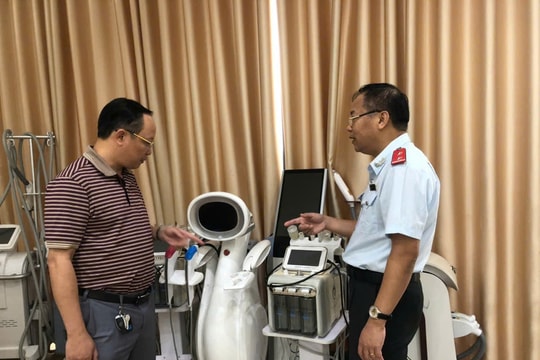Reduces the severity of vestibular disorders
Working or living in a stressful environment, with little exercise or unpleasant weather when the seasons change... makes many people often feel dizzy, lightheaded, dizzy, tinnitus, nausea...
These are the symptoms of vestibular disorders. The disease greatly affects the quality of life and working ability of the patient. Therefore, how to reduce the severity of vestibular disorders is extremely important.
Vestibular disorders tend to be younger.
The vestibular system plays a role in balancing the body, maintaining balance in postures, in activities, coordinating moving parts such as eyes, hands, feet, body... Vestibular disorders are common manifestations of loss or reduction of balance, dizziness, vertigo, possibly accompanied by tinnitus, nausea...
There are many risk factors for vestibular disorders, including:
- Due to inflammation such as: otitis media caused by viruses or bacteria.
- Due to trauma: If after head trauma causes damage to the vestibular cerebellar organ.
- Due to blood circulation disorders such as vestibular artery occlusion, spinal artery spasm affecting the inner ear or brain.
- Due to living environment (noise pollution, stress, lack of exercise...) and genetic factors
- Due to prolonged use of painkillers…
 |
Vestibular disorders are related to age, gender, living and working environment. Illustration photo |
According to research, vestibular disorders are becoming more and more common in modern society. Records show that this disease is related to age, gender, living and working environment.
Age is also a risk factor, people see that the older the age, the higher the risk of the disease, it is estimated that about 35% of people over 40 years old have recorded vestibular disorders and currently this number is tending to be younger. The disease is more common in women, people who work or live in noisy environments, stress, little exercise or uncomfortable weather when changing seasons...
Symptoms of vestibular disorders
When suffering from vestibular disorders, patients often have symptoms such as:
- Symptoms of dizziness, lightheadedness, vertigo.
- Patients are prone to falls due to loss of balance and may lose spatial orientation.
- Blurred vision, dizziness, sensitivity to light...
- Typical hearing disorder manifests as tinnitus.
- The patient feels excessively anxious, has difficulty concentrating, and has reduced attention span...
What should people with vestibular disorders do?
When suspicious symptoms appear or symptoms of dizziness, lightheadedness, etc. appear repeatedly, go to a medical facility for examination and appropriate treatment.
In addition, people with vestibular disorders can make lifestyle changes that can limit or reduce the severity of the disease right at home.
Some specific measures:
- Need to keep balance, limit working in dynamic positions
Because of frequent symptoms of imbalance, patients should not read books, use phones or work on computers while traveling by car, bus or train. If symptoms of dizziness appear, lie down and breathe evenly, and close your eyes to reduce light stimulation.
- Protection from light exposure is required.
If a patient has vestibular disorders caused by light sensitivity, when going out, the patient must remember to wear sunglasses and a hat to limit exposure to light.
 |
Increasing physical exercise to increase brain circulation. |
- Limit flying and exposure to noise.
If the patient has symptoms of sinusitis, ear infection or ear blockage... limit flying. Avoid exposure to noise by limiting listening to loud music, avoiding noisy places or going out in the sun without using protective gear.
- Practice regularly
Increasing physical exercise to increase brain circulation will help patients increase resistance and is also good for patients. However, be careful with excessive movements and impacts on the head and neck area.
- Reduce stress
Due to the state of imbalance, or anxiety, the patient should limit stress in daily life and work. If there are signs of anxiety, there should be solutions in which short breaks can be interspersed with time off and work arrangements and allocation to avoid overload.
- Need a scientific diet
It is very important to follow a scientific diet for people with vestibular disorders. Paying attention to a healthy diet that is good for the cardiovascular system as well as adding lots of green vegetables, fruits and limiting animal fat is also a very important factor.
Remember to drink enough water every day, a person should drink about 1.5 - 2 liters of water/day to provide enough water for metabolism and body activities to take place effectively. Absolutely limit alcohol, beer, cigarettes, coffee and harmful stimulants.
And importantly, patients need to have follow-up examinations as prescribed by their doctors. Or they need to be examined immediately if they see signs of vestibular dysfunction, to help prevent serious illnesses such as strokes and brain tumors.




